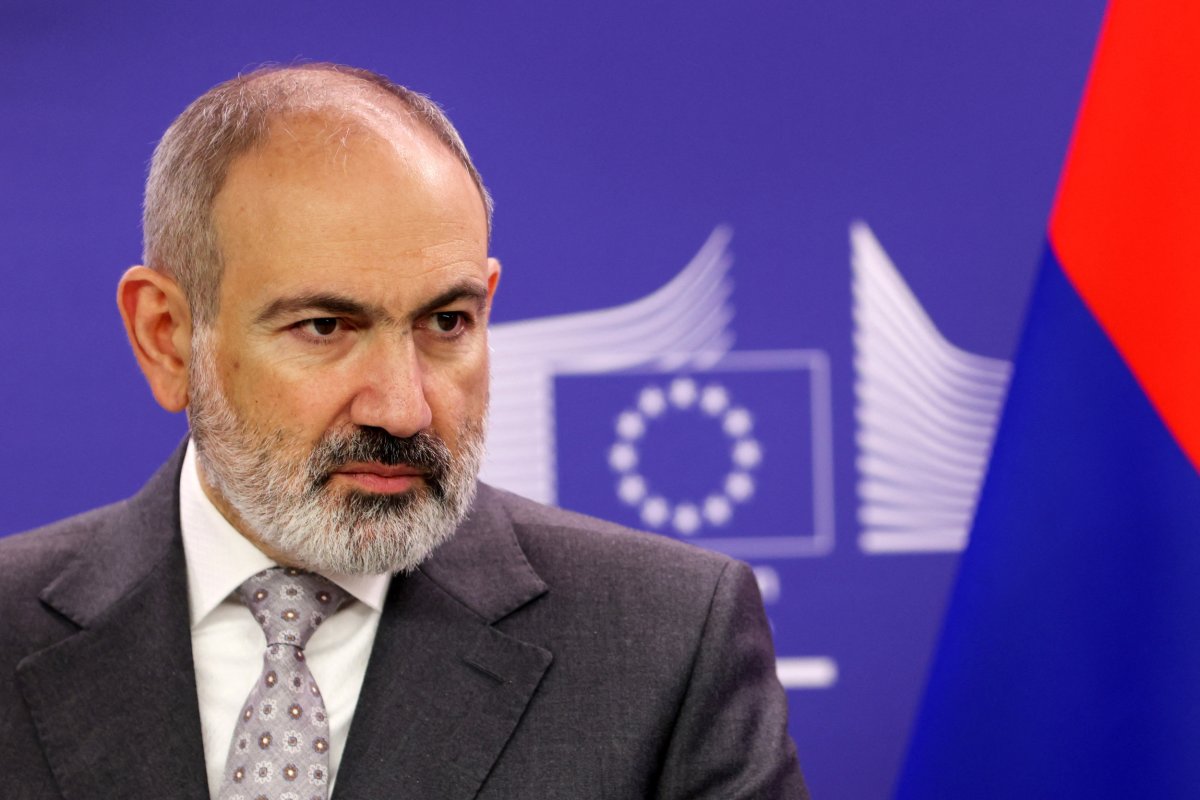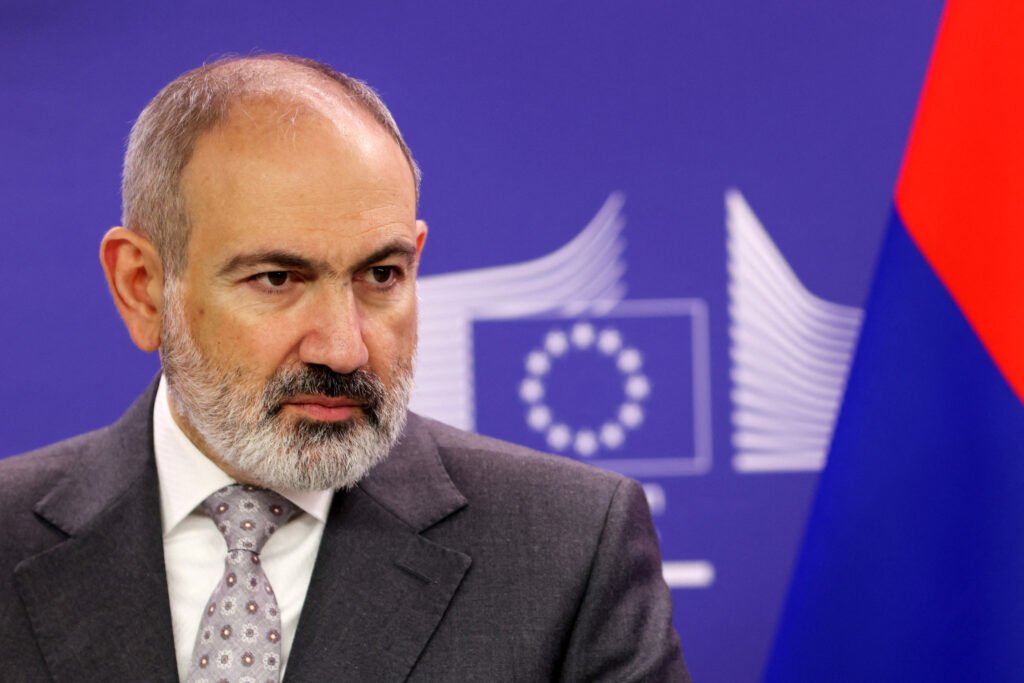Armenia, located in the South Caucasus and plagued by regional conflicts and dictatorship, is at a crossroads and on the brink of crisis. It faces hostile rivals in the east and west, Azerbaijan and Türkiye. To the north is Russia, once seen as a protector but now an untrustworthy outcast. It looks far to the West, but the West has other problems. Meanwhile, the country is struggling to accommodate 120,000 refugees from Nagorno-Karabakh, who were forced to flee last year after an attack by Azerbaijan.
Boasting a vibrant democracy, a vibrant civil society, and an innovative technology sector, Armenia is committed to democracy, liberal values, and free market principles. It’s in an area where these things are not the norm. Swift action is needed to join the European Union. For the EU, whose mandate is now being questioned by many around the world, recognizing and rewarding Armenia’s stance would be a case of doing the right thing and reaping the rewards.

Johanna Gerron/Pool/AFP via Getty Images
The main obstacle to Armenia’s accession to the EU may be concerns about bringing in a country that is at war. Therefore, it is important to emphasize that Armenia does not have any claims against neighboring countries. Armenia’s position on the Nagorno-Karabakh conflict was moderate and aimed at a balanced, fair and sustainable compromise. The Nagorno-Karabakh conflict is not a territorial issue, but an empirically justified fear that Azerbaijan will wipe out its Armenian compatriots within its borders.
Nagorno-Karabakh is the historic center of Armenia, but the Soviet Union’s gift to Azerbaijan has created a situation that is difficult to reverse.
The enclave gained autonomy when the Soviet Union collapsed, a fair deal, but Azerbaijan resorted to brutal force to seize the region. After a 10-month blockade starvation that began in December 2022, Azerbaijan attacked Nagorno-Karabakh on September 19, 2023. More than 100,000 people, the entire population of the region, fled to Armenia.
This ethnic cleansing cannot be justified. Armenia should remain focused on achieving the right of return through an ironclad security agreement, the return of all prisoners of war, and the full restoration of Armenia’s territorial integrity. Although Armenia does not have claims against Azerbaijan, Azerbaijan has claims against Armenia and has hinted at the need to carve a corridor through our territory to Turkey, often threatening the country. It undermines the legitimacy of the whole thing.
Armenia’s historical story is full of such challenges, including the 1915 genocide of Armenians at the hands of the Ottoman Turks and the complicated relationship between the two neighboring countries since then.
We sought stability through partnership. Unfortunately, the major war against Russia in recent decades has proven to be misguided. Our complacency backfired as Russia became belligerent on the world stage and signed a strategic alliance agreement with Azerbaijan in 2022. So-called peacekeeping forces deployed around Nagorno-Karabakh in 2020 did nothing to stop the blockade and ethnic cleansing.
Europe, which has struggled with undervalued existing members and cooperated with prospective members like Turkey, would gain much from bringing Armenia into its family.
Is Armenia ready?
Armenia has made significant progress in complying with EU accession standards. It has demonstrated a commitment to democratic governance, undertaken economic reforms, and improved its legal and institutional framework.
The Comprehensive and Enhanced Partnership Agreement (CEPA) was signed between Armenia and the EU in 2017, laying the legal foundation for closer ties. However, CEPA watered down Armenia’s desire to integrate with European structures. Fast-tracking EU membership would not only demonstrate Armenia’s progress but also provide a stable framework for sustainable development.
It would also demonstrate that the EU recognizes Armenia’s security concerns and contribute to regional stability. This is important because the South Caucasus region serves as a strategic energy corridor and occupies a strategically important position.
Freedom, democracy, the rule of law, and the resilience of states and public institutions are prerequisites for our country’s security and development. I do not believe that there is a contradiction between freedom and patriotism, democracy and the protection of national identity. Freedom lends itself to the sustainability of strong sovereignty. In the state and its existing institutions, sovereignty is the most appropriate basis for the protection and prosperity of national identity. Therefore, Armenia’s first priority is to protect its sovereignty, political independence, and territorial integrity, as well as its political and cultural identity.
At the same time, realism is necessary, especially in case of defeat. Careful diplomacy will be crucial if we are to follow the path to the EU. To dispel concerns that Armenia’s pursuit of relations with the EU is not aimed at exacerbating conflicts and hostilities, it is necessary to build on genuine and sustainable security, based on mutual respect for sovereignty and political independence, Clear communication and sustained engagement with all regional actors is necessary to establish stability and cooperation. rather, it focuses on promoting peace and cooperation in the region.
Historically a representative of Western civilization in Asia Minor, Armenia, with the support of its European brethren, will eventually be able to emerge as a bridge between our culture and the cultures of neighboring countries. Then light will emerge from darkness.
Grigor Hovhannisyan is a former Armenian Ambassador to the United States and Mexico, and a former Deputy Minister of Foreign Affairs of Armenia.
The views expressed in this article are the author’s own.
rare knowledge
Newsweek is committed to challenging conventional wisdom, finding common ground and finding connections.
Newsweek is committed to challenging conventional wisdom, finding common ground and finding connections.

